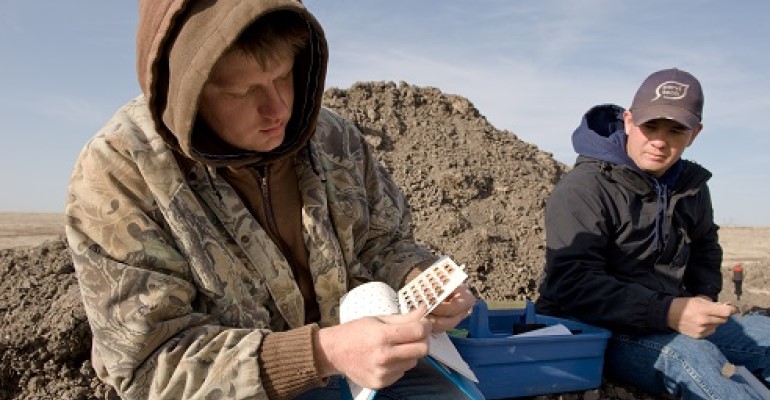Soil-based research gets $1.9m boost
Fifteen universities selected for Soil Science Collaborative Research projects focused on soil science and soil survey research.

People around the world look to the U.S. Department of Agriculture’s Natural Resources Conservation Service (NRCS) as a leader in soil research and for the science to make improved land use planning decisions. Recently, NRCS announced $1.9 million in funding for 15 Soil Science Collaborative Research projects focused on soil science and soil survey research.
Now in its 12th year, the current Soil Science Collaborative Research projects were selected from among 32 applications. Projects were selected based on nationally identified needs in communities and landscapes.
"NRCS is a world leader in soil research,” said Dave Hoover, director of the NRCS National Soil Survey Center. “This prioritized investment in science-based tools will develop innovative data sharing and information delivery tools and products to reach multiple stakeholders around the world, from underserved audiences to the most technically advanced."
Hoover explained that the projects help universities build their capacity within their curriculum and increase awareness of their students on soil research efforts.
Hoover, who oversees the three soil research scientists at the Lincoln, Neb., facility, said these projects also add to their capacity and to the scientific expertise with eager graduate students and a great student workforce. “We see it as essential to partner with universities to build our capacity and increase our awareness,” he added. Those first interactions offer a new contact and improved awareness of the role NRCS plays.
The information gained from the collaborative research will advance NRCS’s ability to provide scientifically based soil and ecosystem information to help address important natural resources issues facing the nation.
“NRCS is investing in universities across the country to leverage their scientific knowledge and expertise to support our conservation mission.,” NRCS chief Matthew Lohr said. “By engaging a diverse group of scholars through research, we can identify innovative solutions and technological advancements that will increase our contributions to both science and society.”
One of the selected projects is at the University of Texas-Rio Grande Valley, a Hispanic Serving Institution that is looking to expand its soil science research and educational opportunities in the Rio Grande Valley -- a key area for agricultural production, with a 90% Hispanic population. Through participatory research, the Kika de la Garza Science Fellowship program, technical assistance, training and outreach events, the university is providing students and producers with experiences that prepare them to meet the challenges and opportunities related to agricultural, food and natural resources.
The University of Arizona is working on a project to combat deadly dust storms on Interstate 10 in the desert Southwest. They are developing a Dust Risk Index that can be used by the Arizona Department of Transportation and the National Weather Service in an early-warning system between Phoenix and Tucson, Ariz. Additionally, the project will utilize existing NRCS soil surveys and ecological site descriptions to help identify dust hotspots for the best investment in dust mitigation actions, such as mulching and chemical stabilizers.
Purdue University is going to expand the soil map database for Soil Explorer, an educational app for iPad and Android devices, to make it a more useful training tool for utilization anywhere in the U.S. Soil Explorer pairs transparent maps of soil properties with a highly optimized hill shaded base map that provides a 3-D representation of the topography. These maps are powerful teaching and learning tools that allow one to see relationships between soils and geomorphology and to understand why it matters.
To view more on the projects selected, click here.
About the Author(s)
You May Also Like




